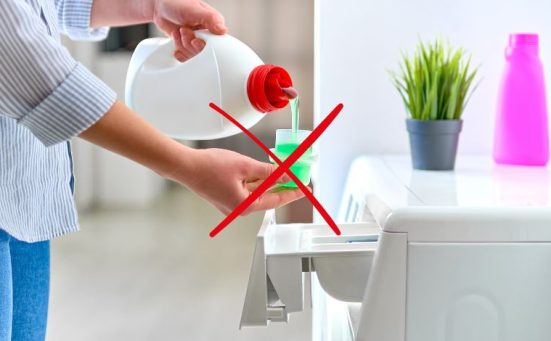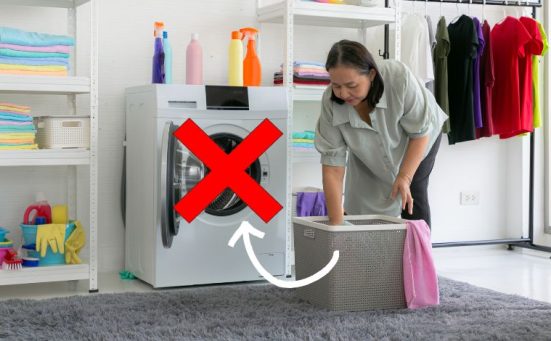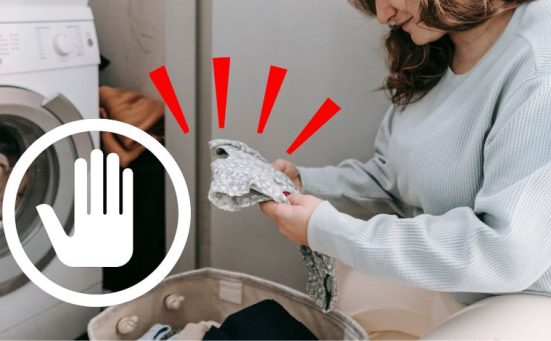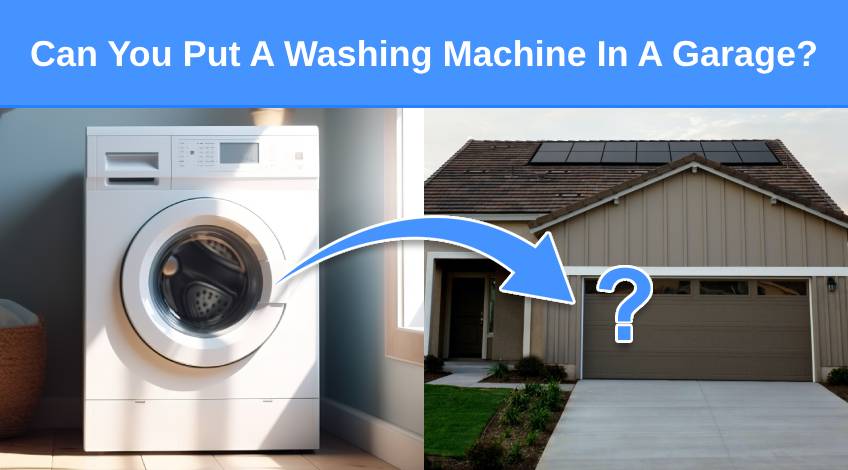
Can You Put A Washing Machine In A Garage?
The answer is straightforward: yes, you can put a washing machine in a garage. But here’s the thing – is it really a good idea?
In this article, we’ll find out what your garage needs to be ready for a washing machine, the advantages and disadvantages of this decision, and even some alternative spots where you can put your washer.
So, let’s take a closer look at the details and make sure you have all the information you need before making this decision.
Is Your Garage Fit For A Washing Machine? (factors to consider)
Before moving your washing machine to the garage, there are a few key factors to keep in mind:
Does Your Garage Have Proper Ventilation?
It’s not a good idea to put your washing machine in your garage if it’s not well-ventilated.
The reason why is that washers create a lot of moisture from the heat and steam during wash cycles. This can lead to condensation-related issues that can affect your washer and all the other things in your garage.
Condensation happens when warm, moist air comes into contact with something cooler, whether it’s cooler air or a colder surface, causing the moisture in the warm air to turn into water droplets.
Now, if you place your washer in a cold area like a garage and there’s no proper ventilation, this can cause the steam to become water droplets again, which might damage your appliance and its surroundings and may lead to rust and mould.
One way to prevent this is by opening the door and window of your garage to release the warm air trapped inside. You can also consider adding a dehumidifier to your garage to remove extra moisture in the air.
Does Your Garage Maintain A Consistent Temperature?
Unlike your home, the garage is not well insulated and goes through different temperatures depending on the season.
For instance, in winter, it can get very cold, and this might cause water pipes and parts of your washing machine, like the drain hose, to freeze. When water freezes, it expands, which can lead to damage inside the washer affecting the pipes, hoses, and valves. Running a hot water cycle in winter can help prevent this, but it may use more water and energy.
On the other hand, in the summer, the high heat can make your washer overheat, malfunction, and even risk causing a fire.
These temperature changes can put stress on your washing machine, potentially damaging it over time. These can cause electrical problems and water leaks once you use the washer again after thawing.
Adding a thermostat can help you monitor the temperature in your garage and prevent exposing your washer to extreme warmth or cold.
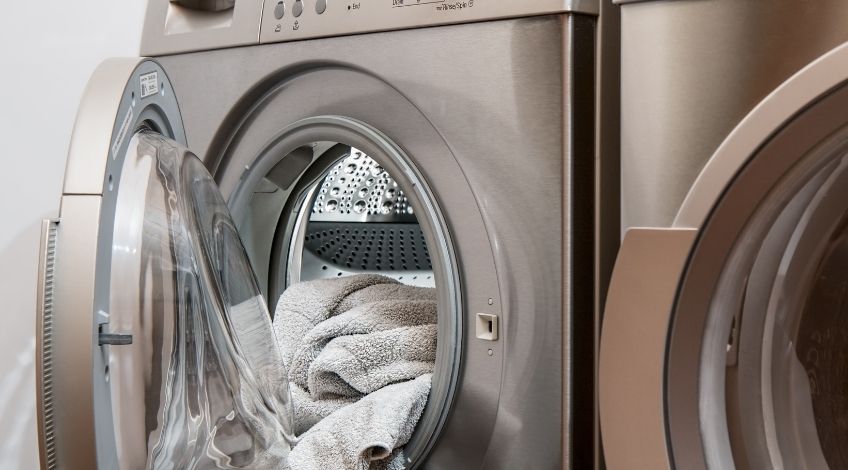
Does Your Garage Have Plumbing In Place?
When it comes to plumbing, you can ask a professional for help or do it yourself. There are some important things to check first when you’re plumbing your washer on your own:
Make sure your detached garage has properly installed plumbing ready like water pipes and drains. Check if the pipes are protected from the cold because you don’t want them to freeze during the colder months.
Make sure that you properly install the drain line. Be mindful of where you connect your washer so it’s not connected to a surface water drain which is harmful to the environment and illegal.
Additionally, the water supply and the fill hose should be installed correctly for your washing machine’s water supply. It’s best to position your washer near the water taps so you can make sure there is good water pressure and water flow.
And lastly, the valves should also be installed properly. Install the valves near your washer to control the flow of water. Also, adding a shut-off valve to turn the water supply off can help you in case of an emergency.
Is Your Garage Safe For Installing A Washer?
Be mindful of potential hazards in the garage, such as flammable materials like oil, paints, and petrol. These items pose a fire risk and should be stored separately from your washer.
Consider the possible power surges or voltage fluctuations when planning to place your washer in the garage. These power surges can occur due to factors like electrical grid issues in your area or the distance of your garage from the main electrical setup in your home.
You can use a surge protector to help absorb excess electrical energy and shield your appliance from electrical spikes. Selecting the appropriate surge protector for your washer can significantly extend its lifespan.
Is It Worth The Remodelling Costs?
Setting up your washing machine in the garage can be expensive, as the garage needs to meet specific requirements, including proper ventilation, insulation, plumbing, and electrical connections.
Moreover, you need to make sure that the garage floor is level, as washers can vibrate a lot during use. If the washing machine isn’t stable, it can damage itself and other things around it. If it’s not level or tilted, it may affect the washer’s drainage and cause leaks.
Installing a utility sink in the garage can also be helpful for pre-washing dirty items and maintaining the cleanliness of your washer by avoiding collecting grime and dirt.
What Are The Pros And Cons Of Garage Laundry?
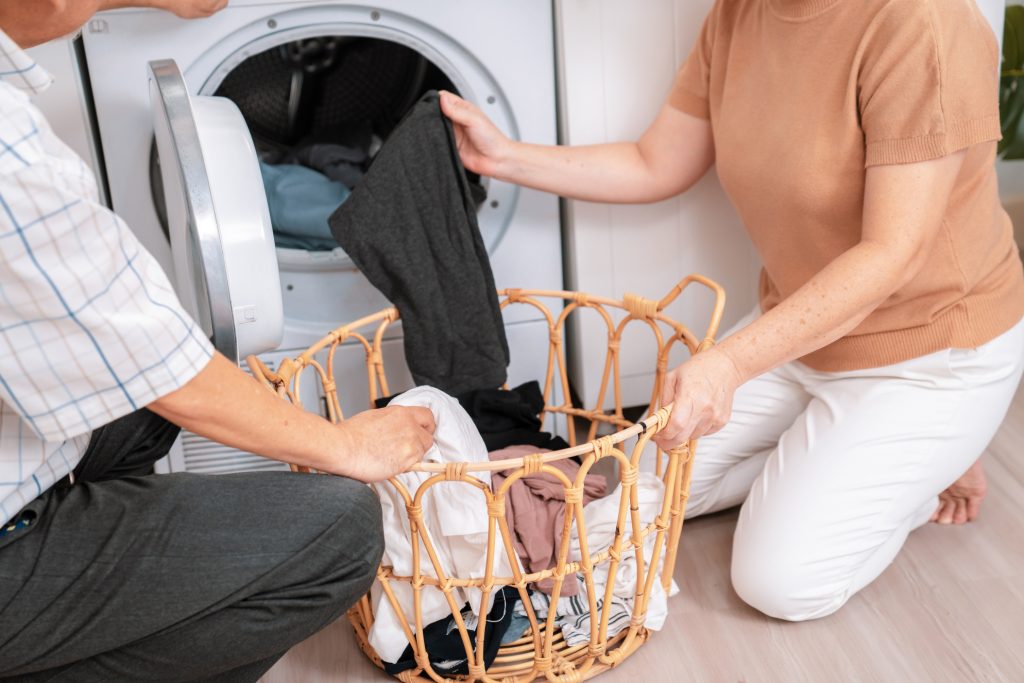
When it comes to setting up your washer in the garage, it’s essential to weigh the pros and cons. Here’s a closer look at the advantages and possible downsides:
The Pros:
- Garage’s Usually Have A Stable Floor
Placing your washer on the garage’s concrete floor provides a sturdy and stable foundation. This is important as washing machines tend to vibrate during operation. A stable ground minimises the risk of the machine moving around, which can lead to damage or water leaks. - You’ll Hear Less Noise When Doing Laundry
If your washing machine is particularly loud during wash cycles, the garage can be an ideal spot. Additionally, having an insulated wall between your garage and the other parts of your home can contribute more to reducing the loud noises your washer makes during spinning and drying cycles. - It Can Be More Convenient
Having your washer in the garage means quick and easy access when you need to load or unload laundry. You can transfer your laundry items to and from your car without having to carry them through the house. This is particularly handy for items like sports gear or gym clothes, which can be sweaty and dirty. Keeping these items out of your living spaces helps maintain a clean and odour-free home. - It Frees Up Space In Your Home
Placing your washer in the garage can free up space in other parts of your home, helping you keep your living areas more organised and clutter-free. You’ll have more room for other household items or even create a designated laundry area in your garage.
The Cons:
- Takes Up A Lot Of Space In The Garage
While moving your washer to the garage frees up space indoors, it does take up valuable garage space. This is a disadvantage if your garage serves multiple purposes, such as a parking area or storage space. You need to consider how this change affects the way your garage works and how easy it is to use. - You Might Miss Important Warning Signals
If your garage is separate from your main house, you might not notice some warning signs like small noises during operation with your washer. Dealing with problems early can stop them from getting worse or costing a lot to fix. So, when your washing machine is in the garage, make sure to keep an eye out for issues and do regular check-ups to keep it working well.
Other Alternative Places To Place Your Washer Instead Of The Garage
If the garage isn’t an ideal option, there are alternative locations to consider:
- Dedicated Laundry Room
Set up a separate room for your laundry essentials, including your washer. This way, all your laundry stuff stays in one place, and you have a single spot for folding and ironing your clothes. - Kitchen Cabinet
If space is limited, consider placing your washer in a kitchen cabinet. This not only conceals it but also saves you the effort of moving between rooms for laundry tasks. - Bathroom
Bathrooms usually have the necessary water connections, making it easier to set up a washer. They stay warm, keeping a steady temperature, which is good for your washer all year round. Plus, you won’t have to carry your dirty clothes to another place, making it more convenient.
SEE ALSO: Can You Put A Washing Machine In A Bathroom?
Frequently Asked Questions
To store your washing machine in the garage, make sure it’s placed on a stable and level surface, connected to proper plumbing and electricity. Keep it away from flammable materials and protect it from extreme temperatures, water leaks, and moisture by using insulation.
Your washing machine may freeze in the garage during cold seasons if it’s not properly insulated and exposed to freezing temperatures. Using a thermostat or a dehumidifier can help regulate temperature and prevent freezing.
Insulating a washing machine in the garage requires using insulation materials or placing it in a well-insulated space to prevent freezing. Additionally, having an insulated wall between the garage and the rest of your home can help maintain a stable temperature. Avoid air leaks by sealing gaps and cracks.
Yes, you can change a section of your garage into a laundry space if it meets necessary requirements, including proper insulation, ventilation, plumbing, and electrical connections.
The cost of creating a laundry room in your garage differs based on factors like insulation, plumbing, and electrical work. It can range from a few hundred to a few thousand pounds, depending on your specific needs and local labour costs.
A washing machine can be installed in different locations, but it’s important to consider factors like ventilation, insulation, plumbing, and safety. Common places include a laundry room, bathroom, or even a well-prepared garage.
Also, follow us on Pinterest ...

